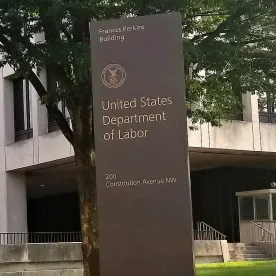On May 19, 2020, the US Department of Labor (“DOL”) issued its final rule likely expanding the FLSA’s Section 7(i) overtime exemption for commission-based workers in retail and service industries by withdrawing the long-standing, historical list of businesses that the DOL identified as falling within or outside of what it deemed to be a retail or service establishment.
Section 207(i) of the FLSA, commonly referred to as Section 7(i), provides an exemption from the FLSA’s overtime pay requirements for certain employees of retail or service establishments paid primarily on a commission basis. For a half-century, the Section 7(i) regulations have contained two non-exhaustive lists of establishments (i) that the DOL deemed to have “no retail concept” that are categorically unable to claim the exemption and (ii) that may be recognized as retail. These lists have been the source of much confusion, including criticism from counsel in litigation, and some courts, as to whether the lists had any rational basis or had become antiquated and no longer applicable in the modern world.
Under the final rule, which was issued without notice and comment and takes effect immediately, the DOL removes the lists of business with “no retail concept” and that “may be recognized as retail” from the regulations. This means, that in order in doing so, business establishments that were excluded may now be considered as offering a retail product or service and qualify for the exemption.
The DOL states that the rule “is intended to promote consistent treatment across all industries and reduce confusion when determining eligibility for claiming the section 7(i) exemption.” Utilizing a single analysis for all establishments is meant to account for an industry gaining or losing retail characteristics as the economy modernizes and develops over time.
In order for a business to avail itself of the Section 7(i) exemption, it must still meet the following three criteria:
-
The employee must be employed by a “retail or service” establishment, which is defined by the DOL as “an establishment 75 per centum of whose annual dollar volume of sales of goods or services (or both) is not for resale and is recognized as retail sales or services in the particular industry.”
-
The employee’s regular rate of pay must exceed 1.5 times the applicable minimum wage under the FLSA.
-
More than half of the employee’s total earning in a representative period must be commissions.
Therefore, the DOL’s new rule, while making the Section 7(i) analysis available to employers that previously were presumed not to be able to enjoy it, does not automatically apply. The employer still needs to satisfy the standard test, but can now seek such an application without the DOL’s casting a shadow over the argument from the start.
Particularly in light of the impact of COVID-19 on the greater business world, and employers’ renewed focus on reducing overhead where lawful and possible, now is a great time for employers to take a fresh look at the exempt status of their sales people and other commissioned employees.





 />i
/>i

